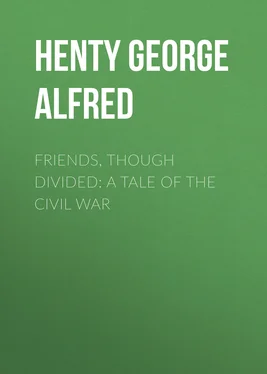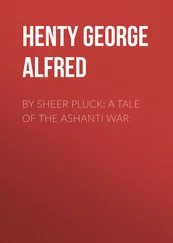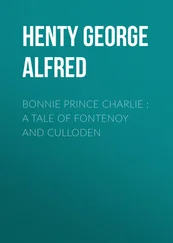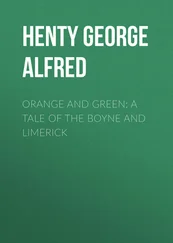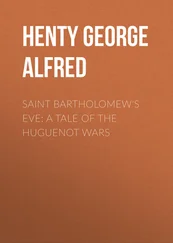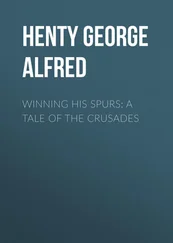George Henty - Friends, though divided - A Tale of the Civil War
Здесь есть возможность читать онлайн «George Henty - Friends, though divided - A Tale of the Civil War» — ознакомительный отрывок электронной книги совершенно бесплатно, а после прочтения отрывка купить полную версию. В некоторых случаях можно слушать аудио, скачать через торрент в формате fb2 и присутствует краткое содержание. Жанр: foreign_children, foreign_antique, foreign_prose, prose_military, на английском языке. Описание произведения, (предисловие) а так же отзывы посетителей доступны на портале библиотеки ЛибКат.
- Название:Friends, though divided: A Tale of the Civil War
- Автор:
- Жанр:
- Год:неизвестен
- ISBN:нет данных
- Рейтинг книги:3 / 5. Голосов: 1
-
Избранное:Добавить в избранное
- Отзывы:
-
Ваша оценка:
- 60
- 1
- 2
- 3
- 4
- 5
Friends, though divided: A Tale of the Civil War: краткое содержание, описание и аннотация
Предлагаем к чтению аннотацию, описание, краткое содержание или предисловие (зависит от того, что написал сам автор книги «Friends, though divided: A Tale of the Civil War»). Если вы не нашли необходимую информацию о книге — напишите в комментариях, мы постараемся отыскать её.
Friends, though divided: A Tale of the Civil War — читать онлайн ознакомительный отрывок
Ниже представлен текст книги, разбитый по страницам. Система сохранения места последней прочитанной страницы, позволяет с удобством читать онлайн бесплатно книгу «Friends, though divided: A Tale of the Civil War», без необходимости каждый раз заново искать на чём Вы остановились. Поставьте закладку, и сможете в любой момент перейти на страницу, на которой закончили чтение.
Интервал:
Закладка:
"We reached Shrewsbury, as I wrote you," he said, "and stayed there twenty days, and during that time the army swelled and many nobles and gentlemen joined us. We were, however, it must be owned, but a motley throng. The foot soldiers, indeed, were mostly armed with muskets; but many had only sticks and cudgels. On the 12th we moved to Wolverhampton, and so on through Birmingham and Kenilworth. We saw nothing of the rebels till we met at Edgecot, a little hamlet near Banbury, where we took post on a hill, the rebels being opposite to us. It must be owned," Sir Henry went on, "that things here did not promise well. There were dissensions between Prince Rupert, who commanded the cavalry, and Lord Lindsey, the general in chief, who is able and of great courage, but hot-headed and fiery. In the morning it was determined to engage, as Essex's forces had not all come up, and the king's troops were at least as numerous as those of the enemy. We saw little of the fighting, for at the commencement of the battle we got word to charge upon the enemy's left. We made but short work of them, and drove them headlong from the field, chasing them in great disorder for three miles, and taking much plunder in Kineton among the Parliament baggage-wagons. Thinking that the fight was over, we then prepared to ride back. When we came to the field we found that all was changed. The main body of the Roundheads had pressed hotly upon ours and had driven them back. Lord Lindsey himself, who had gone into the battle at the head of the pikemen carrying a pike himself like a common soldier, had been mortally wounded and taken prisoner, and grievous slaughter had been inflicted. The king's standard itself had been taken, but this had been happily recovered, for two Royalist officers, putting on orange scarfs, rode into the middle of the Roundheads, and pretending that they were sent by Essex, demanded the flag from his secretary, to whom it had been intrusted. The scrivener gave it up, and the officers, seizing it, rode through the enemy and recovered their ranks. There was much confusion and no little angry discussion in the camp that night, the footmen accusing the horsemen of having deserted them, and the horsemen grumbling at the foot, because they had not done their work as well as themselves. In the morning the two armies still faced each other, neither being willing to budge a foot, although neither cared to renew the battle. The rest of the Parliamentary forces had arrived, and they might have struck us a heavy blow had they been minded, for there was much discouragement in our ranks. Lord Essex, however, after waiting a day and burying his dead, drew off from the field, and we, remaining there, were able to claim the victory, which, however, my son, was one of a kind which was scarce worth winning. It was a sad sight to see so many men stretched stark and dead, and these killed, not in fighting with a foreign foe, but with other Englishmen. It made us all mightily sad, and if at that moment Lord Essex had had full power from the Parliament to treat, methinks that the quarrel could have been settled, all being mightily sick of such kind of fighting."
"What is going to be done now, father?" Harry asked.
"We are going to move forward toward London. Essex is moving parallel with us, and will try to get there first. From what we hear from our friends in the city, there are great numbers of moderate men will be glad to see the king back, and to agree to make an end of this direful business. The zealots and preachers will of course oppose them. But when we arrive, we trust that our countenance will enable our friends to make a good front, and to overcome the opposition of the Puritans. We expect that in a few days we shall meet with offers to treat. But whether or no, I hope that the king will soon be lodged again in his palace at Whitehall."
"And do you think that there will be any fighting, sir?"
"I think not. I sincerely hope not," the colonel said.
"Then if you think that there will only be a peaceable entry, will you not let me ride with you? It will be a brave sight to see the king enter London again; one to tell of all one's life."
The colonel made no reply for a minute or two.
"Well, Harry, I will not say you nay," he said at length. "Scenes of broils and civil war are not for lads of your age. But, as you say, it would be a thing to talk of to old age how you rode after the king when he entered London in state. But mind, if there be fighting, you must rein back and keep out of it."
Harry was overjoyed with the permission, for in truth time had hung heavily on his hands since the colonel had ridden away. His companionship with Herbert had ceased, for although the lads pressed hands warmly when they met in Abingdon, both felt that while any day might bring news of the triumph of one party or the other, it was impossible that they could hold any warm intercourse with each other. The school was closed, for the boys of course took sides, and so much ill-will was caused that it was felt best to put a stop to it by closing the doors. Harry therefore had been left entirely upon his own resources, and although he had ridden about among the tenants and, so far as he could, supplied his father's place, the time often hung heavy on his hands, especially during the long hours of the evening. After thanking his father for his kindness, he rushed wildly off to order his horse to be prepared for him to accompany the troop, to re-burnish the arms which he had already chosen as fitting him from the armory, and to make what few preparations were necessary for the journey.
It was some days, however, before any move was made. The king was occupied in raising money, being sorely crippled by want of funds, as well as of arms and munitions of war. At the beginning of November the advance was made, Sir Henry with his troop joining Prince Rupert, and advancing through Reading without opposition as far as Maidenhead, where he fixed his quarters. Two days later he learned that Essex had arrived with his army in London. On the 11th King Charles was at Colnbrook. Here he received a deputation from the Houses of Parliament, who proposed that the king should pause in his advance until committees of both Houses should attend him with propositions "for the removal of these bloody distempers and distractions." The king received the deputation favorably, and said that he would stop at Windsor, and there receive the propositions which might be sent him.
Unfortunately, however, the hopes which were now entertained that peace would be restored, were dashed to the ground by an action which was ascribed by the Royalists to the hotheadedness of Prince Rupert, but which the king's enemies affirmed was due to the duplicity of his majesty himself. On this point there is no evidence. But it is certain that the advance made after this deputation had been received rendered all further negotiation impossible, as it inspired the Commons with the greatest distrust, and enabled the violent portion always to feign a doubt of the king's word, and great fears as to the keeping of any terms which might be made, and so to act upon the timid and wavering. The very day after the deputation had left, bearing the news to London of the king's readiness to treat, and inspiring all there with hope of peace, Prince Rupert, taking advantage of a very thick mist, marched his cavalry to within half a mile of the town of Brentford before his advance was discovered, designing to surprise the train of artillery at Hammersmith and to push on and seize the Commons and the city.
The design might have been successful, for the exploits of Rupert's horse at the battle of Edgehill had struck terror into the minds of the enemy. In the town of Brentford, however, were lodged a regiment of foot, under Hollis, and these prepared manfully to resist. Very valiantly the prince, followed by his horse, charged into the streets of Brentford, where the houses were barricaded by the foot soldiers, who shot boldly against them. Many were killed, and for three hours the contest was resolutely maintained. The streets had been barricaded, and Prince Rupert's men fought at great disadvantage. At length, as evening approached, and the main body of the Cavaliers came up, the Parliament men gave way, and were driven from the town. Many were taken prisoners, and others driven into the river, the greater portion, however, making their way in boats safely down the stream. The delay which their sturdy resistance had made saved the city. Hampden was bringing his men across from Acton. Essex had marched from Chelsea Fields to Turnham Green, and the road was now blocked. After it was dark the Train-Bands advanced, and the Parliament regiments, reinforced by them, pushed on to Brentford again; the Royalists, finding that the place could not be held, fell back to the king's quarters at Hounslow.
Читать дальшеИнтервал:
Закладка:
Похожие книги на «Friends, though divided: A Tale of the Civil War»
Представляем Вашему вниманию похожие книги на «Friends, though divided: A Tale of the Civil War» списком для выбора. Мы отобрали схожую по названию и смыслу литературу в надежде предоставить читателям больше вариантов отыскать новые, интересные, ещё непрочитанные произведения.
Обсуждение, отзывы о книге «Friends, though divided: A Tale of the Civil War» и просто собственные мнения читателей. Оставьте ваши комментарии, напишите, что Вы думаете о произведении, его смысле или главных героях. Укажите что конкретно понравилось, а что нет, и почему Вы так считаете.
